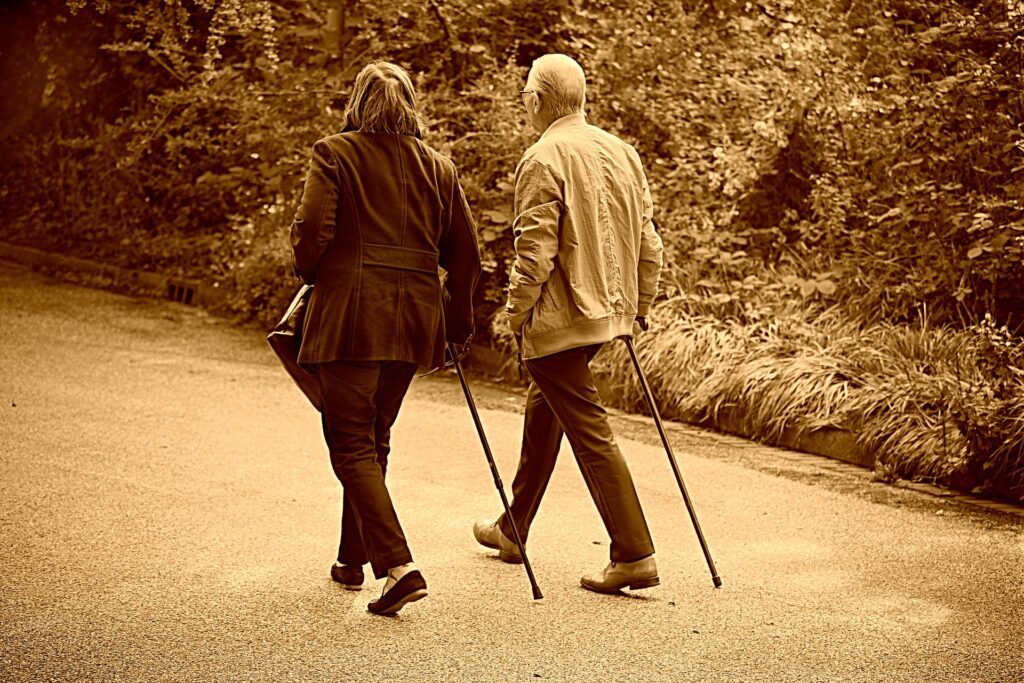Growing older is a natural part of life. But as you enter your golden years, your body and mind face new challenges and health concerns. Sometimes, you might notice your eyesight isn’t as sharp or feel more tired than usual.
Although these changes are natural, they can also be signs of common health issues in older adults. So, knowing about these issues is the first step in avoiding or managing them well. That’s why, in this blog, we will talk about the top concerns many older adults face.
Let’s get started!
Heart Problems
As you age, the heart and the vessels that carry blood throughout your body can face problems. One of the most common issues is an increased risk of heart attack. It happens when the blood flow to a part of the heart is blocked, usually by a blood clot.
The other problem is high blood pressure, which happens when the force of the blood against the walls of your arteries is high. It is often called the “silent killer” because it doesn’t always have obvious symptoms. But it can lead to heart disease and stroke.
Ways to Manage
Fortunately, there are simple and effective ways to manage heart issues. The most important one is to go for regular health checkups. During these checkups, your doctor monitors your heart and identifies potential problems before they become serious.

Also, follow an active lifestyle and have a balanced diet. Eat plenty of fruits, vegetables, whole grains, and lean proteins. Not to mention, limit your intake of salty, fatty, and sugary foods, as they can increase your risk of high blood pressure and heart disease.
Depression
As you get older, you may find yourself spending more time alone. This can be because of reasons like retiring from work, losing loved ones, or facing health problems that make it hard to move around.
This growing isolation can lead to depression, which is too common and affects the mind and the body. In fact, it is estimated that a fifth of all adults in the US will have at least one episode of depression in their lifetime; surprising, isn’t it? Moreover, it can lead to physical health problems like serious heart and digestive issues.
Ways to Manage
One powerful way to fight depression is to talk to a professional, like a therapist or counselor. They can help figure out the root of the problem and suggest ways to feel better.
Next, it is also important to build a network of friends and family members who care. This can be a strong shield against depression. Sometimes, talking with a friend or family at a dinner can lift your spirits, providing comfort and happiness.
Osteoporosis
Another common issue that older people suffer from is Osteoporosis. In this, your bones can become weak and more fragile, making them more likely to break. Although this doesn’t happen to everyone, it is one of the more common health concerns.
In this condition, even a small fall can cause a serious fracture. The hips, wrists, and spine are the most common places for fractures.
Ways to Manage
To help keep your bones strong, you must ensure you are getting enough calcium and vitamin D in your diet. While calcium is found in foods like milk, cheese, and green leafy vegetables, you can get vitamin D from the sun and foods like fish and eggs.
Apart from that, it is essential to prevent fractures. For this, all you need to do is remove trip hazards in the home, like rugs or wires, and install handrails. It’s also a good idea to wear shoes with good grip.
Vision and Hearing Loss
The center of your eye’s retina can wear down as you age. It means that your central vision – the vision you use to read, drive, and recognize faces – can get blurry.

Further, growing older can affect your hearing. The tiny cells in your ears that help you hear can become less effective. This makes it harder to hear high-pitched sounds and follow conversations, especially in noisy places.
Ways to Manage
One of the best ways to manage the problem is by getting regular checkups. A doctor can help catch problems early on, giving you a better chance to manage them effectively.
Moreover, glasses or hearing aids as required, are very helpful in such conditions. They can help you see better and hear more clearly, making daily life easier and more enjoyable.
Bottomline
Navigating the journey of aging isn’t always easy, but with awareness and proactive care, it’s possible to face its challenges head-on. So, if you or someone you know is experiencing health concerns, reaching out for professional guidance and support is essential. After all, your golden years are a treasure; they can shine even brighter with the right care.




